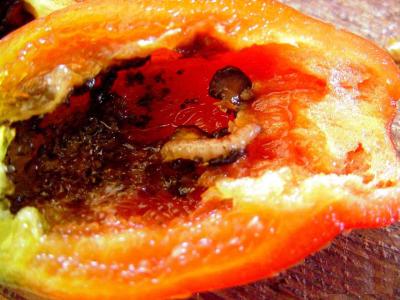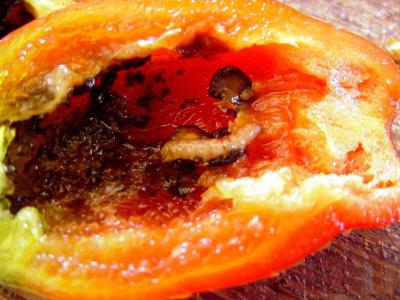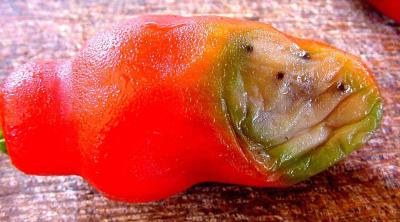


Fruit borers (Helicoverpa spp.; Spodoptera spp.)
Moths of fruitborers are active at dusk and at night, feeding on nectar and laying eggs on leaves. Caterpillars feed on leaves, flowers and fruits. Although severe leaf damage by feeding of African bollworm (Helicoverpa spp.) caterpillars may slow plant growth due to reduced leaf area, caterpillar feeding on leaves is usually of not economic importance. The bollworms are about 2-3.5 cm long.
The main damage occurs on flowers and fruits. Attack on flower buds results in flower abortion. Caterpillars usually bore holes in fruits, causing extensive damage and promoting decay from secondary infection by diseases.
African armyworm (Spodoptera spp.) species are basically leaf-eaters and may cause defoliation when present in large numbers. They also feed on fruits, rendering them unmarketable.
- Plough the soil before planting. This exposes pupae to natural enemies and desiccation.
- Check the crop regularly. Early detection and destruction of eggs or young caterpillars before they bore into the fruits is very important.
- Hand pick and destroy damaged fruits, eggs and caterpillars. This helps when their numbers are low and in small fields.
- Conserve natural enemies. Parasitic wasps, ants, pirate bugs are very important for natural control of the African bollworm.
- Whenever necessary use biopesticides such as Bt, neem products or other plant extracts. This is particularly important from the onset of flowering. Target caterpillars before they enter the fruit.
For more information on neem click here. For information on Bt click here
